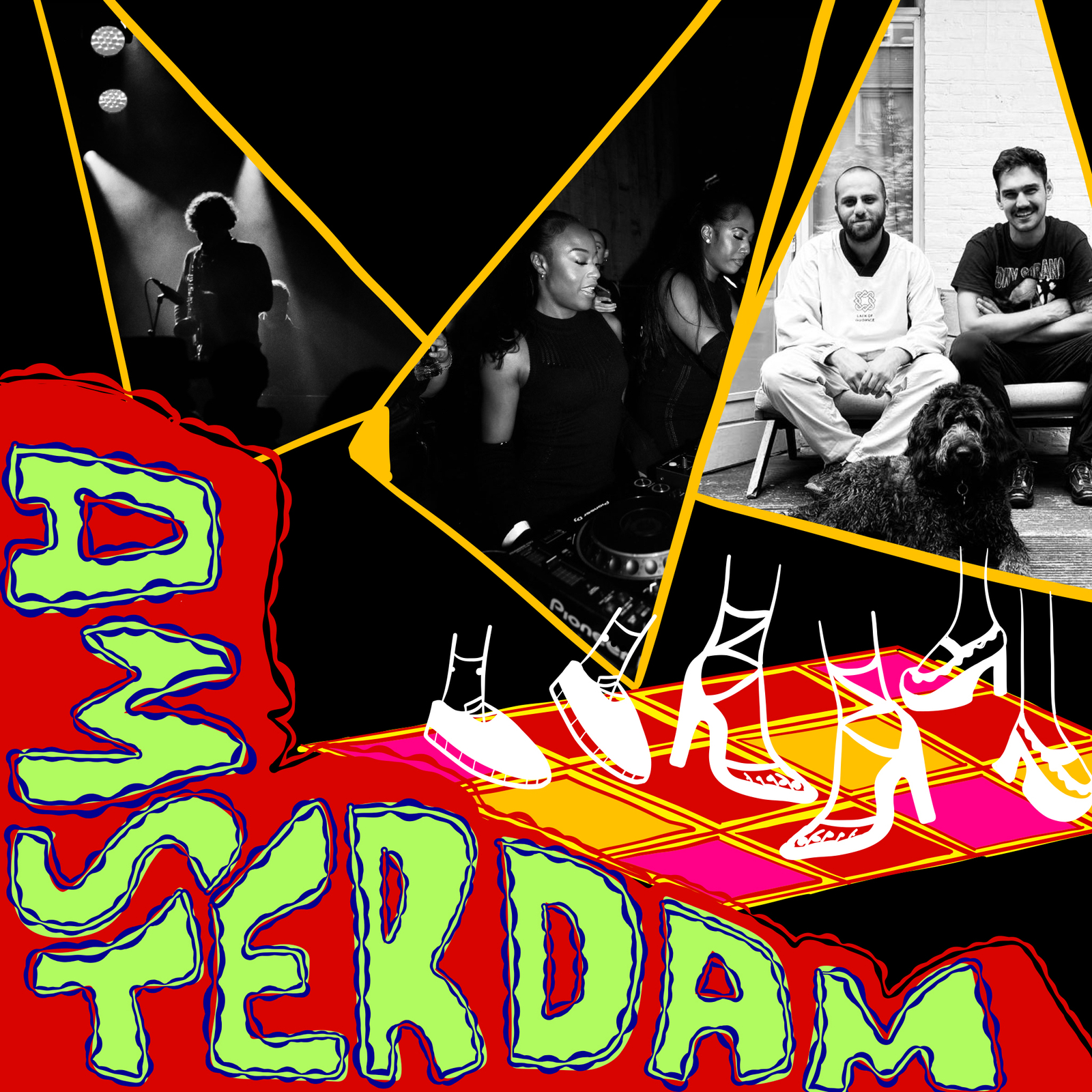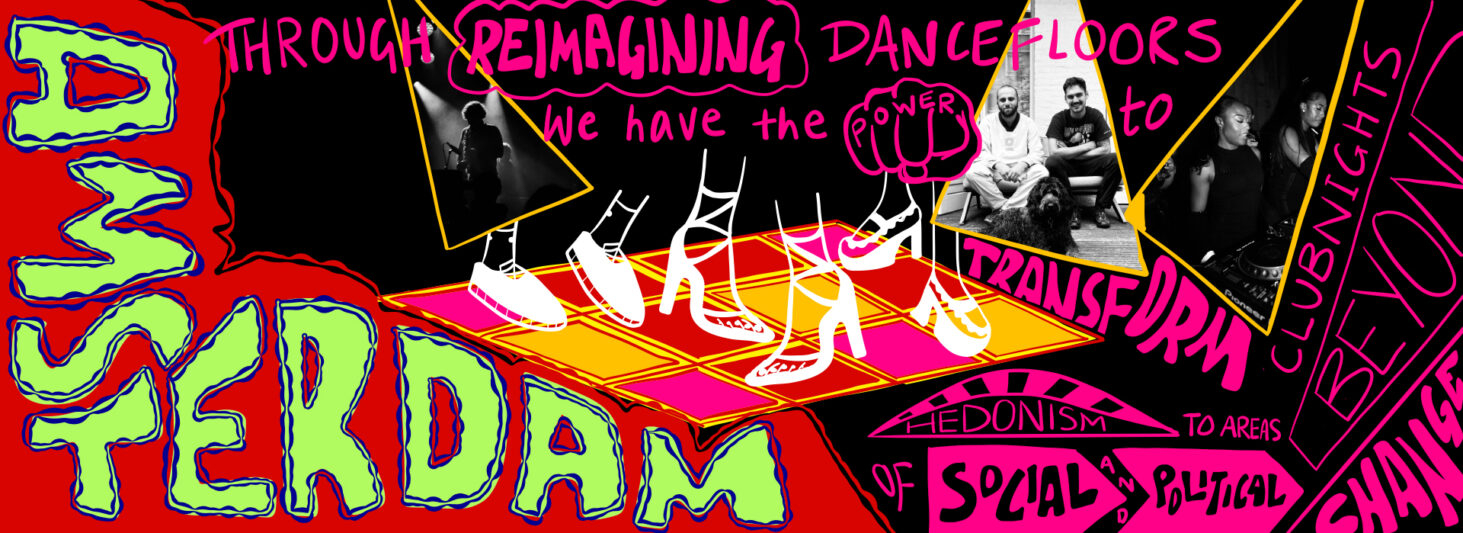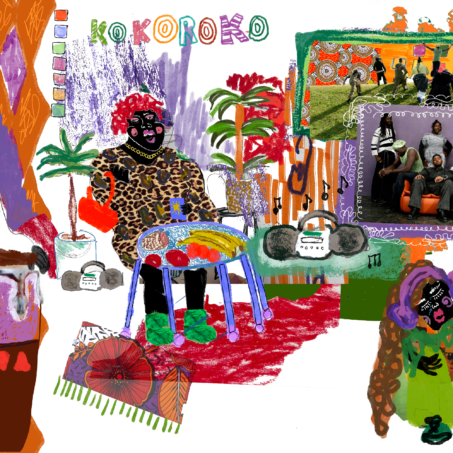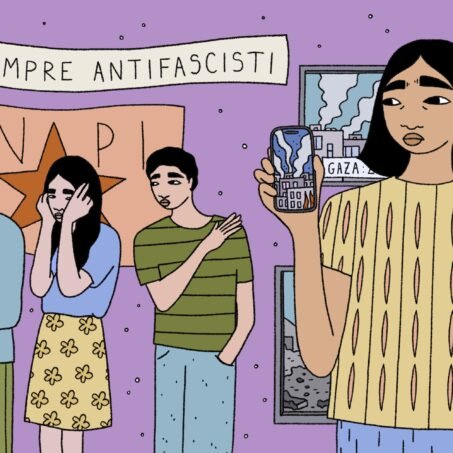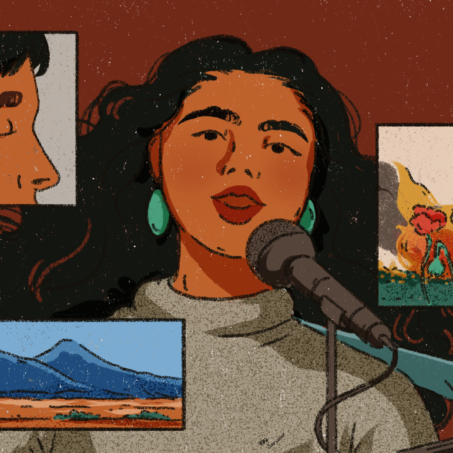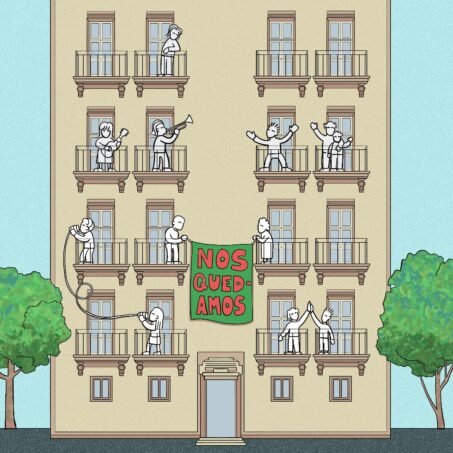Dance Dance Revolution
shado and KALTBLUT magazine are taking three of Europe’s biggest cities, London, Berlin and Amsterdam, and investigating how and if young people are turning to music collectives as safe spaces of political community that traditional politics is failing to provide.
When I first moved to Amsterdam back in 2017, I frequently found myself describing its nightlife scene as almost exclusively ‘oonts oonts’ techno music played by white male DJs. However, since becoming more involved in the city’s music scene, I’ve started to witness the start of a much-needed transformational shift in the cultural landscape.
As I’ve become more actively engaged in the city’s nightlife, I’ve been noticing an increasing number of music collectives that are changing the status quo, amplifying marginalised voices and sparking conversations around social issues that are often overlooked by political leaders.
Although Amsterdam has a reputation for being a progressive city with forward-thinking politics, there’s a decline in engagement from the younger population. In its 2017 national election, the number of votes cast by 18-24-year-olds fell to 66% – a downward trend that has continued for some years. This is particularly the case among younger migrant communities in The Netherlands, where those surveyed by the Netherlands Institute for Social Research (SCP) said they didn’t feel represented and had “little faith” in Dutch politics. As traditional political institutions are failing to engage and inspire the concerns of young people, many are finding alternative channels to seek change and find spaces that represent them.
This is something I can recognise from my own social circles, where despite being inherently political, many of us have chosen to channel our activism into alternative avenues after feeling unrepresented in mainstream politics.
Dutch political institutions are suffering from a lack of diversity and this is failing people across the country. From the Prime Minister refusing to ban Zwarte Piet (Black Pete), to the political scandal that falsely accused minority families of fraud, there is a sense among many that the system only serves the white middle class. It therefore comes as no surprise to me that over half of Dutch nationals with a migrant background don’t think the country is hospitable to them. Instead, young people are taking action through their own platforms that prioritise inclusivity, equity and progress.
Using music to rebuild fractured communities
Many of Amsterdam’s new music collectives challenging the political status quo are primarily coming together in order to celebrate inclusivity, showcase a wide range of voices and disrupt the city’s normalised power dynamics. One such platform includes Diaspora Radio, the collective bringing together communities from Southwest Asia and North Africa (SWANA).
Founded by Hani and Mehrun, Diaspora Radio started as a show on Echobox aiming to share and archive stories from the SWANA regions and those that have travelled to and settled in The Netherlands.
“I’ve been in Amsterdam’s dance music industry for a long time and have seen my share of racism. I needed to create something where I could promote people from my community,” Hani told me.
After hosting multiple conversations with South Asian DJs on my podcast, RepresentAsian, it doesn’t come as a surprise that racism is rampant in the nightlife industry. From majority white lineups, to the racism entrenched in the scene in general, the dance music industry has become severely whitewashed – leaving others feeling excluded and with a need to create their own spaces.
“From the moment that Mehrun and I met, we were constantly sharing stories. Stories from our background, our parents, and the reason our families left Iran,” explains Hani. “Before meeting him, I found myself in white bubbles and I didn’t have the feeling that people in my circles understood me. But when I found others with roots from similar regions, I realised that our stories are largely untold. The community from the SWANA region in The Netherlands felt shattered and I wanted to play my part in bringing them together.”
Starting as a radio show, Diaspora Radio has evolved into an impressive event series, including a recent fundraiser at the nightclub, De School. The collective action and political mobilisation used DJs, art installations and talks to raise awareness and funds for those affected by the Turkey and Syria earthquake. The thoughtfully curated performances at the event created a lineup that forged connections between music, activism and social change.
“Our community is about more than having fun and appreciating our culture; we are here for political reasons. We need to go beyond the good times. To truly cherish a community, you need to be there in the more troubling times,” Hani added.
Hani’s point resonates deeply with me, where this sentiment served as a catalyst for many of my own political endeavours. Although our platforms serve to celebrate our cultures, they are also here to provide a sense of community and drive support during challenging times.
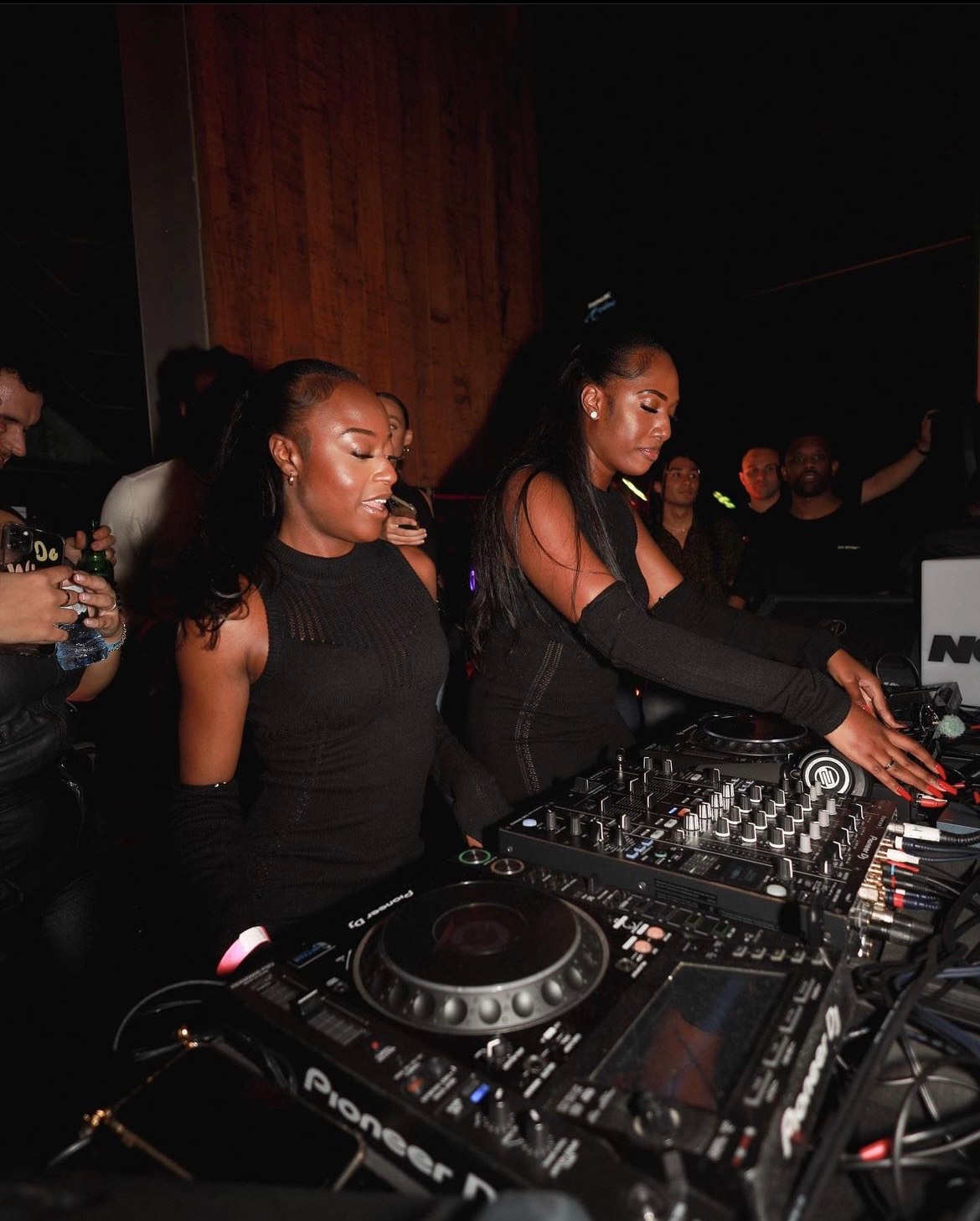
Moving beyond a boys club
Whilst Diaspora Radio was born out of a need for inclusivity within Amsterdam’s music scene, other collectives in the city are intentionally evolving to ensure they become more representative.
Steppin’ Into Tomorrow is a local collective that has shifted its intentions to champion diverse spaces and challenge structures of power, privilege and exclusion. Maurice Dharampal, who’s a core member of the team, sat down with me to share how they are ensuring their events go beyond hedonism to become more intentional, political and thoughtful.
“Steppin’ was created as a space to bring the music heads together from what we felt was a very fragmented scene. However, when we did a mix series a couple of years ago, someone pointed out that it was mostly made up of white men. At the time, I was oblivious to this, but during university, I became more socially conscious, which led to us having many internal conversations about how we need to move away from being a boys club into an inherently political project,” said Maurice. “Listening to criticism is extremely productive,” he added.
The idea of a ‘boys club’ within the music scene isn’t exclusive to Amsterdam. You only need to look at DJ Mag’s top DJs of 2022 – where there are only two women in the top 30 – to see that it’s a widespread problem. However, unlike Steppin Into Tomorrow, I’m not convinced that many other spaces are committed to adopting a more inclusive environment.
Music as a form of protest
“Music has always been used as a form of protest,” says Maurice. “You can channel messages about self-exploration, consumerism, address systemic racism… It’s a great way to tell a story and curate your identity. In my sets I’ve always liked to include songs with a message that speaks to me.”

Join our mailing list
Sign up for shado's picks of the week! Dropping in your inbox every Friday, we share news from inside shado + out, plus job listings, event recommendations and actions ✊
Sign up for shado's picks of the week! Dropping in your inbox every Friday, we share news from inside shado + out, plus job listings, event recommendations and actions ✊
Maurice’s statement rings true and since living in The Netherlands, I’ve seen many Dutch artists use music to challenge racial discrimination and advocate for social justice. Rapper and performer Akwasi’s track, Geen Wedstrijd (No Competition), showcases his experience as a person of colour in the country, shedding light on the country’s racial inequality. As a prominent figure in the Dutch Black Lives Matter movement, his work has continually intersected with politics, sparked national conversations around racial injustice, and highlighted how music can play an important role in making positive change.
“It’s important to show that the dance floor has always been a place of politics. A few years ago, I remember saying that I would love it if people could leave their identity at the club door. I now realise that many dancefloors exist because of oppression. Oppressions around gender, sexuality, race, ethnicity… that’s why queer clubs came to exist, it’s why disco clubs began, it’s why house music came into being. Dancefloors are inherently political, otherwise a lot of scenes we know today wouldn’t exist.” For Maurice, music is an important platform to channel his political beliefs and encourage others to engage with the world around them critically. He does this through exploring and playing all types of music; exploring songs from his South Asian roots to his favourite musicians from Detroit.
This rings true in many events I have attended over this past year, where DJs, dancers and performers have used music to unite and inspire the crowds.
As well as hosting nights, radio shows and mixes, Steppin’ Into Tomorrow is also hosting a panel talk series; ‘The Politics of the Dancefloor’, which prompted conversations of what it means to navigate a predominantly white, male-dominated club landscape. By introducing critical analysis into club culture, the collective is hoping to challenge the idea that these spaces don’t mix. Through inviting different perspectives, the panel series is hoping to broaden the discourse and strive for more equitable club scenes across Amsterdam.
For me, taking club culture into a space of thoughtful conversation is an essential step for moving forward, allowing people in the industry to come together and combat issues around safety, discrimination and sexism that have been normalised in club environments.
How collectives are responding to the industry’s shortcomings
Discussing the burgeoning trend of such panels in Amsterdam, DJ duo, BLACKPRINT, recognised the profound impact of critically discussing women’s existence in the nightlife industry. Forming out of a need for inclusivity, Ornella and Tyra founded the collective as a response to the scene’s shortcomings and lack of women of colour.
“It’s definitely a good start to see that people are starting to speak up and change the current scene. We hope in the future that this becomes a normal standard and not a choice that just shows you’re pushing a certain agenda,” Ornella and Tyra told me.
“We’re trying to bring more awareness to the challenges that we and other women (of colour) face in the industry such as the importance of networks, fees and the routes that you have to grow for ”better” slots. There are still stigmas around the DJ scene and we noticed there isn’t a platform or initiative where you can address this,” they added.
As mentioned by Maurice, and highlighted by this article sharing ‘Amsterdam’s Best DJs’ (spoiler, they’re all men), DJing circles in the city can easily fall into being boys clubs. Being a predominantly male industry, it’s difficult for women to navigate the scene and collectives like BLACKPRINT are important for women to come together and work through the challenges. Over the past couple of years, the rise of collectives are surging and it’s exciting to see more nights across Amsterdam being hosted exclusively by women and non-binary people.

Reimagining dancefloors as sites of change
As well as creating a space for other women of colour DJs, BLACKPRINT is going beyond that and acting as guides and mentors for those who are struggling to navigate a scene that frequently excludes them. For me, Ornella and Tyra’s intentions for the collective are an important next step for marginalised groups who want to break into spaces that weren’t built for them in mind. I have always recognised the value of mentoring – particularly as a woman in nightlife. With a DJ for an older brother, I’ve always had someone to check my mixes, give advice, and to be there whenever we play an event together. However, without him, I would have had much more trouble navigating an industry that comes off as intimidating.
Despite having my doubts about the city’s music scene when I first moved five years ago, I have recently become more aware of many groups trying to carve a space in the city’s largely homogenous nightlife. Whilst they remain a smaller percentage of the scene, I’m pleased to now be discovering collectives representing marginalised groups regularly.
Like my own platform, RepresentAsian, which aims to champion South Asian DJs, the act of creating spaces for marginalised groups carries political significance in Amsterdam. The work of music collectives like BLACKPRINT, Diaspora Radio and Steppin’ Into Tomorrow is bringing together communities and allowing young people to channel their politics and activism into alternative spaces.
Through reimagining dancefloors and carving out these spaces, we have the power to transform clubnights beyond hedonism to areas of social and political change. Whilst Amsterdam may be known as a progressive city, there is often distrust from younger people towards mainstream political institutions.
As a result, we’re seeing more of the city’s younger population channel their activism and political energy into spaces they already hold and have control over. To those outside of the music industry, these efforts may not seem significant – but as someone who craves spaces for marginalised groups, these music collectives fill Amsterdam’s nightlife scene with joy and hope for change.
What can you do?
- Follow Club Transmission: The Dutch queer party transmitting queer healing and joy.
- Follow Los Angeles Collective: This is the Amsterdam-based collective dedicated to showcasing and nurturing trans talent – and host everything from parties to self defence classes.
- Follow Ampfemine: The Rotterdam-based collective creating a more diverse nightlife.
- Watch this short film on Zwarte Piet: In this 2015 short, African-American filmmaker Roger Ross Williams goes on a journey to understand why the Dutch feel compelled to dress in blackface during the Sinterklaas holiday period.
- Listen to Dutch rapper, Akwasi: Musician and prominent figure in the Black Lives Matter movement her in The Netherlands.
- Read the article about how migrants saved nightlife: This Vice article explores the Dutch town where an influx of migrants saved local bars and clubs.
- Read more articles in the series:
